The best keyword research technique in SEO?
There isn’t one.
But there’s the best approach to keyword research even if you are a newbie in the SEO industry
Technique combining.
So, if you can:
- Use SEMrush to find keywords your competition ranks for.
- Use Ahrefs to find content gaps to fill.
- Use Moz’s Keyword Explorer for complete topic coverage
Then you’re set.
And when you throw in good ol’ Google Suggest and Keyword Planner, then you’re rocking a near perfect keyword research strategy.
There’s only one problem:
Those tools are mighty expensive; And everyone and their mother (and grandmother) knows about using Google for keyword research.
[one_half_first]
So what are you to do?
Target the same keywords as everybody else?
Give up?
NO!
[/one_half_first][one_half_last]  [/one_half_last]
[/one_half_last]
In this article, I am going to show you a few off the beaten track keyword research tactics and Practical SEO expert tips.
They are easy; and they are free; and they show untapped keywords.
Want to know the best part?
Very few know about them. Coincidentally… These are the people that rank.
Coincidence?
Keep thinking that.
Or,
Keep reading.
#1 Did you know- questions are keywords? (Answer the Public)
Answer the Public is a free online tool you can use for keyword research.
Just pop in your target keyword and it’ll spit up hundreds of questions people ask.
Do you see how powerful this is?
Google, Bing and Yahoo are search engines in name, but recently they’ve become “the answer engines”.
That means their goal is NOT to deliver the result that has the best keyword usage.
No,
They are after one that:
- Answers the question,
- Solves the query,
- Delivers on the user intent.
The true “best result”.
And since you have what people ask on a silver platter, you can cut the fluff out and tailor your answer to match.
Gold.
And here’s something to blow you away.
People who have one question, for example, “what is organic coffee” usually have a bunch of other related questions.
For example:
- Where to buy organic coffee beans
- What is fair trade organic coffee
- Is organic coffee bad for you
- Is organic coffee necessary
Your job is to gather the questions most relevant to “organic coffee” and make them topics within your mega article.
The end result will be a piece of content that is thorough, well researched, and extremely keyword targeted.
Now:
The graph above is super cool- but there’s a problem. It’s a neck killer:)
So in the upper left corner choose “data”.
And you get a list like this.
To be honest with you, Answer the Public the only tool you need to do well.
If you’re ever in a hurry and can only do simple keyword research- pick this tool and your conscience is clear.
#2 Here’s how to Use Reddit to source great ideas
Reddit is a huge content aggregator. And a huge purgatory of content too.
Articles that are bad (they’re evil:) ) fall into the hell that is Reddit’s ever-moving feed- and stay there forever.
Those that are good are lifted up to heavens, for everyone to see and admire as exemplary content.
Yes– I borrowed the analogy from Dante Alighieri, but the gist is- On Reddit, the best content always rises.
Our example is “coffee” (again)
- Go to https://www.reddit.com/r/Coffee/
- Click “top articles”; And “links from all time”
Voila! Curated best content, hand-picked by not one or two moderators, but who knows how many Reddit users.
Can you say battle tested?
Now comes the researcher in you. Read the first 10 or 20 pieces and see what made them so popular.
Is it:
- Good storytelling
- Out of the box thinking
- Picking a fight
- Comparisons
- Insults
- Awesome imagery
- Anything else
Whatever it is, take note, and take notice, for these are the wining pieces of your future Reddit- friendly article.
Second approach- Search for keywords on Reddit
You can use Reddit search when you’re targeting a specific keyword ( once again- “organic coffee”)
- Pick a subreddit- https://www.reddit.com/r/Coffee/
- Search for “organic coffee”
- Click “top articles”; And “links from all time”
Now look:
a) What are the best articles about organic coffee, (most comments and upvotes)? You’ll want to model your article after those.
b) What are the worst performing article? You also need to know what NOT to do.
Note- Ironically, I found that organic coffee is not that popular on Reddit. But there are many examples that fell flat.
Learn from them, lest you become one of them.
Third approach- use a keyword research tool
But not just any tool.
Keyworddit.
It’s a free service that helps you extract user-generated keywords from Reddit.
Here are the steps
- Go to Keyworddit.com
- Start typing and it’ll give you a choice of subreddits
- Choose “coffee”
Some of these phrases can be used as they are.
However, it’s best to run them one by one through Google Keyword Planner to see which keywords have a nice set of synonyms to go with them (these will be the bulk of your easy traffic- they’re untapped).
Now that you have keywords real people use and your competition doesn’t know about…
It’s time to write!
But first you might want to…
#3 Use Quora for keyword research
Quora is a QNA site.
“So?
What’s so special about it”-You ask?
“There are millions of them out there”.
True.
But Quora is different. It’s high quality; filled to the brim with enthusiastic, smart individuals who love to share knowledge about their passions.
Think of Quora as a complement to Answer the Public.
You get your list of questions here, and then travel there to see those same questions answered.
But many of the answers are bad, with some decent and rarely a gem or two.
Now you, the cunning researcher, will want to see which answers get the attention they deserve (number of answers, comments and followers); And which are buried down because nobody cares.
Let’s do a search for “organic coffee”:
Voila, again. These are all the questions in need of answering (hint– answer them in your article. That way you know your article is pure gold for Quora users, and likely for everyone else).
Finally, by doing research, you will get a list of Quora question where your future article will be a good fit.
That is brand building, helping people solve their problems, and funneling people back to your property, all at the same time. It’s hard to top that, you agree?
Pro tip-If you do decide to republish your articles on Quora, I advise you to wait 7-10 days before doing it.
Because you want to make sure Google indexes your article on YOUR site first, and then you want to let it sit for a while so Google can revisit a few more times.
This is probably being overly cautious, but it saves you from the headache of worrying about duplicated content.
Google goes by the date of first indexation- so make it work for you.
Pro tip 2 -Quora can be a bit annoying at times. Because you can’t sort the answers based on number of followers, from high to low.
Filter the questions by:
- Questions and followers– Here you can see the number of followers so you’d just need to take note of the more popular ones.
- Number of answers– Here you can see how many answers a question has. If it’s a lot , it’s worth investigating further.
BONUS- 2 quick strategies on making content more rankable
1. Use LSI keywords
LSI stands for Latent Semantic Indexing, which sound scary.
But don’t be afraid! Feel free to continue reading:)
it just means you need to use synonyms in your content.
Now, most people assume they use them naturally as they write. And they’re right… to an extent.
If their article is long enough, and thorough enough, they will include most of them.
However, I suggest you be intentional about it and actually try to target as many as you can.
Think of it as that 1% extra effort that puts puts you ahead of everyone else.
The question is:
Where to find LSI’s?
Well, the first place to look is Google’s “related searches”. And the second is “people also ask” feature in Google.
But this is beginner stuff (everyone’s doing it).
You need to go a step further.
How?
By using the free LSI Graph tool (https://lsigraph.com/).
Just enter your keyword and it’ll show you dozens of related terms you can include in your article.
 Pro tip– Most of the LSI’s can be turned into questions/topics to cover in your post. But some just can’t.
Pro tip– Most of the LSI’s can be turned into questions/topics to cover in your post. But some just can’t.
Does it mean they’re useless to you.
No! (I’m sure you guessed the answer to that:) )
Sprinkle them in your guide where it makes sense- you’ll rank higher in Google if you do.
#2 Use Google Suggest for topics
This is a neat trick I learned from Andy Crestodina.
At the beginning of this article he talks about using Google Suggest to get ideas for an article you’re going to write (basic keyword research); but then he returns to it and mentions that you can use Google Suggests to get ideas for topics within the article itself.
For example:
Let’s see what Google suggests for “organic coffee+ letter A,B, and C”.
But before that, let’s make something perfectly clear.
I mean,
here you are, bombard with all these coffee keyword examples, (the essence of usefulness and good keyword targeting), and all you can think about is:
“uff, this guy, with his coffee! He must be some kind of coffee freak”.
He must really LOVE his coffee”!
Hey, I do, I admit it. And it MUST be organic:)
Now let’s quickly get to the subject, my coffee’s getting cold:)
Google suggestion phrases are topics that can be whole articles themselves; or parts of a mega-comprehensive guide, just to the liking of Google Hummingbird and Rank-Brain.
Precious.
Conclusion- the best keyword research strategy in SEO is…
I mentioned at the very beginning that there is no one best keyword research technique, but that the best approach is technique combining.
That alone is enough to put you ahead of most other marketers. But when you add these little-known tactics to the mix, then you have a powerful tool in your hand.
Use it wisely:)
Want something to add? Do it in the comments below.
I really want to hear your say.
P.S.
Listen, this article was all about getting people onto your platform.
But once they get there, then what? Well, for starters you’ll want to keep them on your site for as long as possible.
It’s simple.
They stay»they read»they buy (or convert)
Would you believe me there’s a simple hack you can use, that virtually guarantees you all the benefits of engaged visitors?
Want to learn what it is?




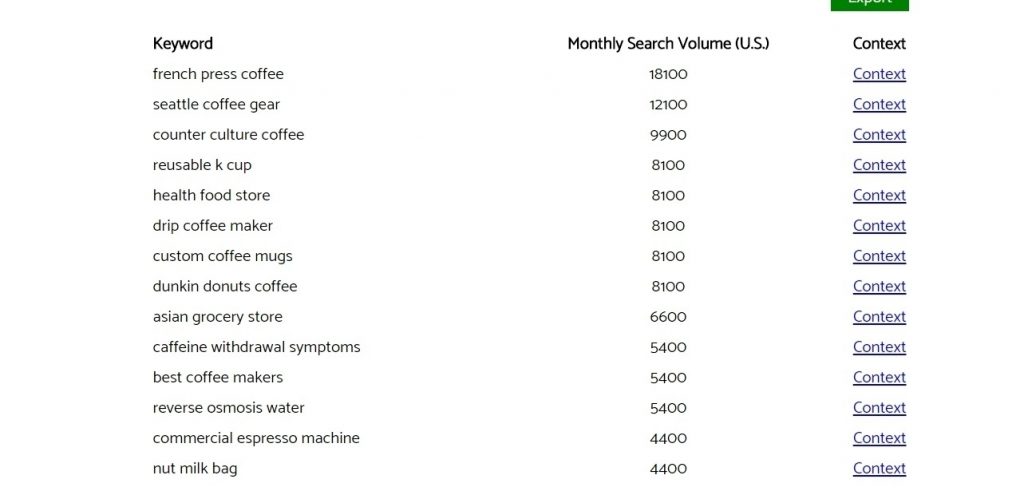
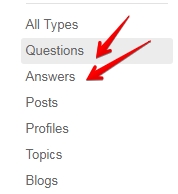
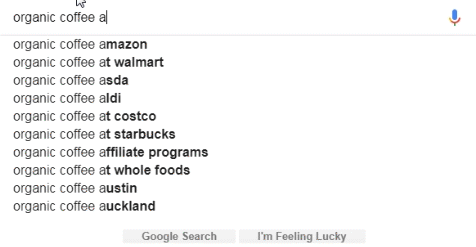
Comments are closed.